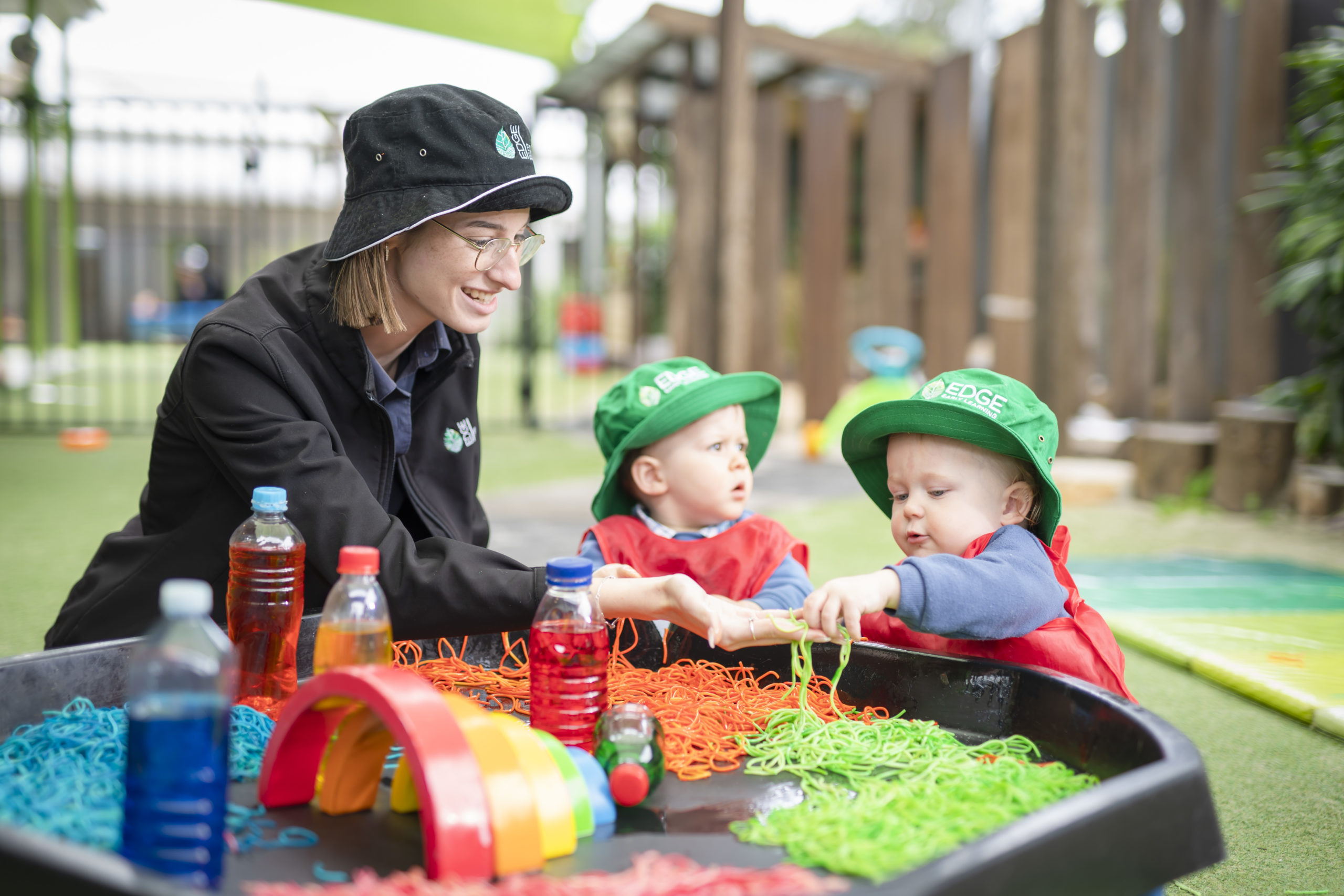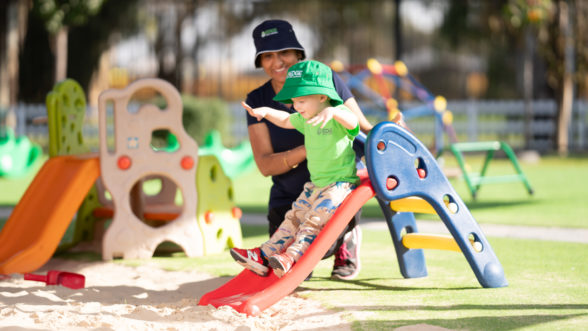
Education
What are the benefits of sensory play?
10 January, 2023

Did you know that some of the most important tools for developmental play were given to your child at birth? This is how you can utilise the five senses – sight, sound, taste, touch and smell – to enrich your child’s playtime.
What is sensory play?
As the name suggests, sensory play is any kind of play activity that engages your child’s senses. It doesn’t just apply to toddlers, either. Any child, no matter what age, can engage in and benefit from sensory play, whether they are riding a bike or building sandcastles.
So, what are the benefits of sensory play? Sensory play is beloved for its ability to help children develop language and motor skills, improve cognitively, experiment and even improve their social interactions. There are different benefits for children of different ages…
Benefits of sensory play for babies
In your child’s earliest years, play is an essential tool for learning and developing new brain connections. Through sensory play, your baby will begin to engage with and learn about the world around them, developing their understanding of language and responding to different stimuli.
Benefits of sensory play for toddlers
During their toddler years, your child begins to develop their ability to think and do things for themselves. Through sensory play, they can start to understand concepts like time, colour and even opposites. The biggest benefit of sensory play for toddlers is the opportunities for exploration – especially independent exploration – it provides.
Benefits of sensory play for preschool-age children
As your child gets older and they become more independent, the sensory play activities they respond to will also change. During the preschool years, sensory play can offer opportunities to develop other skills simultaneously – this could include playing with musical instruments or creating and building with different materials or objects.
Reasons sensory play is beneficial
In general, sensory play is essential for developing a range of skills and abilities. By addressing two sensory systems that are often overlooked – our proprioceptive sense (the awareness of one’s body) and vestibular sense (our sense of movement or balance) – sensory play offers a range of physical, mental and emotional benefits. Specifically, 5 benefits of sensory play are that it helps to…
- Build nerve connections in the brain
- Develop motor skills
- Develop language
- Encourage problem-solving
- Improve scientific thinking
Sensory activities for babies
Some of the best sensory activities for babies include…
- Rice rattles: More than just a versatile ingredient, there are many benefits of rice sensory play. One example is filling an empty drink bottle with raw rice to make a rattle.
- Food: Gone are the days where we tell babies not to play with their food. By squishing bananas, twirling spaghetti and rolling peas around, your child is engaging in sensory play.
- Ice cube: A simple ice cube can teach your baby about temperatures, time and physical forms like ice and water.
Sensory play for children
Some of the best sensory activities for children include…
- Watering plants: Let your child fill up the watering can and tip it onto plants, watching as the soil becomes wet and the plants thrive over time.
- Sand play: Did you know the beach and sandpit can be an effective classroom? Building sandcastles, scooping up sand and adding water are all great sensory play ideas.
- Sensory tables: An easy yet effective way to introduce your child to sensory play, a sensory table utilises household items like rocks, leaves, rice and beans, play-doh, paper and more to teach your child different lessons. Google is full of ideas!
Sensory play at Edge Early Learning
Our hands-on approach to learning is based on our belief in the benefits of sensory play. Click here to find out more about sensory play at Edge Early Learning.

